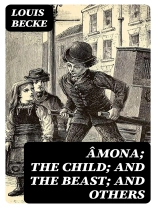In 'Âmona; The Child; And The Beast; And Others, ’ Louis Becke presents a collection of short stories that delve into the complexities of the human experience through the lens of the South Sea islands, an environment both alluring and treacherous. Becke’s prose is richly descriptive, blending vivid imagery and a poetic quality that immerses the reader in the landscape and culture of the Pacific. The stories range from the whimsical to the profound, often revealing the undercurrents of colonialism and the clash of cultures, reflecting the intricate interplay between nature and human emotions. Louis Becke was an Australian author and sailor whose extensive travels across the Pacific islands deeply influenced his writing. Becke’s life experiences, including his encounters with indigenous cultures and his own struggles with identity, informed his exploration of themes such as isolation, survival, and the duality of human nature. His keen insights into the social and political dynamics of the region shine through in his narratives, adding layers of meaning to his storytelling. For readers seeking a captivating journey through a rich tapestry of voices and settings, Becke’s work is essential. 'Âmona; The Child; And The Beast; And Others’ not only offers a glimpse into the heart of the South Seas but also invites contemplation on broader human dilemmas, making it a rewarding read for both literary enthusiasts and those interested in post-colonial narratives.
O autorze
Louis Becke, born George Lewis Becke in 1855, was a prolific writer known for his vivid portrayal of the South Seas. His firsthand experience in the Pacific region, acquired during his years at sea as a young man, heavily influenced his literary oeuvre. Becke’s narratives were rich with adventure and often delineated the ambiguities of colonial and indigenous interactions, giving readers a nuanced perspective on the imperial exploits of the era. Notably, 'Âmona; The Child; And The Beast; And Others’ stands as a testament to his storytelling mastery, encapsulating the compelling tales of the Pacific cultures entwined with the colonial presence. This collection, along with others such as 'By Reef and Palm’ (1894) and 'Ebbing of the Tide’ (1896), established Becke as a significant contributor to colonial literature, with a number of his stories characterized by a pronounced sense of realism and a sensitive depiction of local customs. Becke’s work is not without its critics, who sometimes point to his romanticized vision of Pacific life. However, his literary style, blending factual detail with fiction, continues to captivate scholars and enthusiasts of Pacific history and literature. Becke passed away in 1913, but his narratives live on, providing a window into the dynamic and often tumultuous world of the South Seas during the late 19th century.












